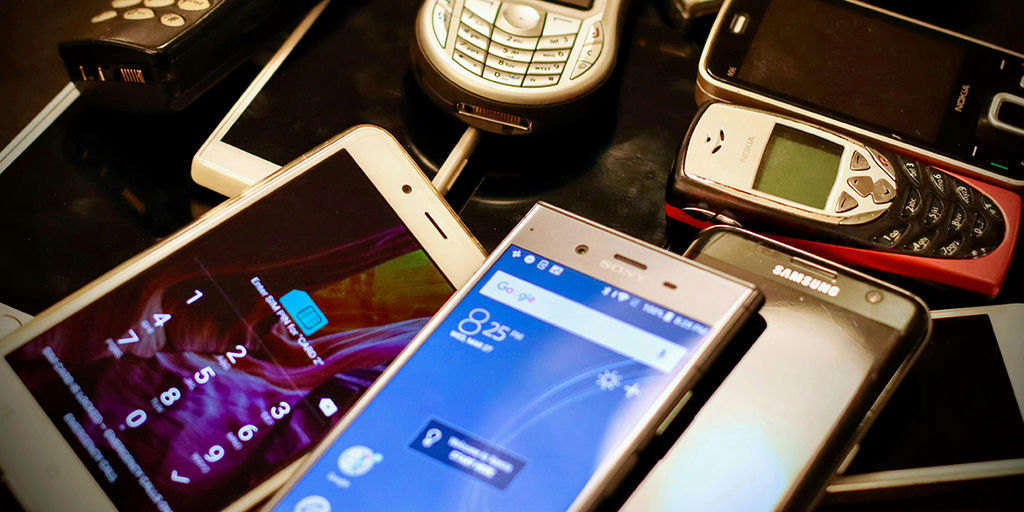Exploitation in our Phones: How the World Failed Congo

(Image Source: Eirik Solheim/Unsplash)
In the heart of Africa lies the conflict-ridden Democratic Republic of Congo (DRC), abundant with valuable minerals such as cobalt, tantalum, tungsten, tin, and other essential elements vital for modern technology. Yet, this wealth is intertwined with a darker narrative of exploitation, violence, and human suffering. This issue stems from the very devices that we hold in our hands. The production of these products has come at a hidden cost, borne by the blood-soaked soil of the people of Congo.
For decades, Congo's mineral wealth has been a double-edged sword, financing warfare and causing instability. Smuggled through porous borders, these minerals line the pockets of warlords and corrupt traders, perpetuating a cycle of violence and exploitation. A good example is cobalt, a vital component of lithium-ion batteries that is used in powering our smartphones and electric vehicles, but has however been identified as a major catalyst of this crisis. Despite international scrutiny and calls for accountability, the plunder of Congo's resources continues unabated, fueled by the insatiable demand for minerals in global markets.
In the thick jungles of eastern Congo, where over a hundred armed rebel groups are located, the extraction of these minerals often takes a heavy toll on human lives. Chinese companies especially have been a major culprit in Congo's mining sector exploitation, as their economic expedition continues to play a pivotal role in shaping the extraction and refining of cobalt. As this quest continues, children as young as six often work in perilous conditions, their labor fueling the insatiable demand for cobalt. Despite assurances of ethical practices, Apple's supply chain remains shrouded, leaving room for the infiltration of minerals sourced from regions ravaged by violence. The term “blood minerals” refers to mineral resources that are sourced through the suffering of a populace caught in the crossfire of armed conflict and rampant exploitation.
Reports of mass killings, forced labor, and child exploitation paints a harrowing picture of the human cost behind our sleek gadgets. An Amnesty International report notes that around 40,000 young boys and girls worked in copper and cobalt mines in southern DRC, a number likely to have increased with the expansion of electric car production.
According to a research report from the US Department of Labor, over 40,000 children, some as young as six years old, are employed in cobalt mines. Working in tight underground spaces without proper safety measures, these child laborers face grave risks of injury or death, including falls into open mine shafts or being trapped in collapses. Women also engage in artisanal cobalt mining because it offers the highest earnings in the region, providing between $2.15 and $8.60 per day with minimal investment, training, or skills required, as reported by The Northern Miner Group. Even though the laws of the DRC prohibit children under 18 from working in mining, lack of enforcement and widespread poverty continue to fuel this exploitation.
Beyond the sad tale of human lives lost, mining in Congo also has profound environmental repercussions. The extraction process yields hazardous byproducts that can poison ecosystems as mines rich in sulfur contribute to the formation of sulfuric acid when exposed to the environment; they contaminate the air, rivers, streams, and marine life.
A Transformational Shift is Needed
A sustainable approach demands a transformative shift. Key to this is embracing the recycling of lithium-ion batteries, which are generally much less polluting than oil. This evolution, however, will necessitate effective medium- and long-term strategies to address both environmental concerns and the soaring demand for batteries as electric vehicles gain more traction. For example, the long-term storage of batteries poses a significant threat when not properly managed, as lithium-ion batteries can release toxic substances into the environment, including heavy metals that seep into soil and groundwater.
Also, integrating plant-based strategies into mining rehabilitation efforts in Congo could significantly mitigate environmental impacts and promote sustainable land-use practices. Different plant species possess unique abilities to absorb and mitigate contaminants. For instance, sunflowers are known for absorbing radiation, as demonstrated at the Chernobyl nuclear disaster site in northern Ukraine (this site is well-known for the catastrophic nuclear accident that occurred on April 26, 1986). Mustard greens also excel at absorbing lead, making them valuable in safeguarding children from lead poisoning. Willow trees are adept at storing heavy metals in their roots, while poplars can efficiently absorb hydrocarbons from petrochemical pollution due to their water-absorbing properties. Alpine pennycress has also shown promise in absorbing various heavy metals, particularly when soil pH is adjusted to be more acidic. These plants not only clean up pollutants but also help prevent their spread via wind, rain, or groundwater, thereby preventing contamination within mining sites and safeguarding surrounding ecosystems.
It is also important for us to move beyond mere substitution of mineral resources towards adopting eco-friendly solutions. Therefore, encouraging infrastructure changes, such as promoting bicycling and walking should be embraced by all to alleviate the pressure on mineral resources from an over-reliance on cars.
Multinational corporations like Apple also have a moral obligation to uphold the highest standards of corporate responsibility; profits should not come at the expense of human rights, despite the insatiable hunger for greater profits as demanded by the board of directors of any for-profit corporation. Companies must prioritize the well-being of workers and communities impacted by their operations. This means investing in sustainable development initiatives, supporting local economies, and empowering marginalized groups to shape their own futures. Naturally, action over superficial lip service is especially important.
Our gadgets and vehicles may connect us across continents, but it is our shared humanity that binds us together in the fight for a better world. If we are to build a more just and equitable future, we must confront this reality head-on and demand accountability from those who profit from exploitation. It is time for us all to heed the call for justice and stand in solidarity with the people of Congo as we promote the quest for ensuring environmental accountability and sustainability.

